









Lydia Philippovna Chugunekova (Gelhorn), born in 1931
Father – Philipp Philippovich Gelhorn (born in 1902), mother – Lydia Karlovna (Nilmaier), born in 1907; they raised six children: Lydia, Philipp, Vladimir, Erna, Andrei, Erna; two of them died, when they were small children: Hilda/Nina, Vladimir (more details about the family, as well as photos, can be found on the pages of the “Family Book”). The father worked as a book-keeper after having completed several special courses. The mother was able to read and write. Both spoke Russian quite well. The family lived in the city of Yekaterinenthal (Katharinenthal, District of Krasnokut, Saratov Region).
The whole family „was stuck“ in Kansk for about a month. The trains were fully loaded with war technology destined for the front, and the people had to camp in tents. Once a day they were dished out soup, they also received bread. Among the people were different nationalities, not just Germans, but also Letts, Finns and Greeks.
Having finally left Kansk, they got to the District of Dzerzhinsk, hamlet of Kondratevo. An old man with a long beard came running up, called the family names and took the people with him on sleighs. Lidia Filippovna recalls the impressions she had from the wood land. Their former place of residence had been situated right in the steppe zone of the Volga Republic. Her brother said: «Good that they chased us away from the Volga; otherwise we had never seen what wood looks like». When we arrived in Kondratevo, the local residents began to shout: «The Germans are here!», some spat on the ground, others insulted us by saying bad words. But there were some who behaved good-naturedly towards the newcomers. Hence, they were taken in by the Podvigins (four children, the husband was at the front). They got potatoes to eat and could warm up.
Before the deportation Lydia Filippovna went to school for two years. For good performance in school she was rewarded with a Stalin bust. When the family members had to pack their belongings, her father decided to take the bust along – first of all for political reasons, and secondly because it was a gift made to his daughter: «A gift to my daughter – we can’t leave it, we have to take it with us!». After they had settled in a bit, the bust was placed next to the icons. Once a woman was in the house, she was praying and, all of a sudden, recognized the Stalin figure: «Oh, you damn bastard! You have taken my children away from me!».
One year later the family was sent to Krasnoyarsk. They were on board a ship four days and nights; they were provided with food. On their way groups of people were deposed along the river bank in different places, whereby the responsible persons followed specific lists. Lydia Filippovna‘s family had to leave the ship with a group of 120 people (among them Germans, Letts and a Greek family). They were asked, whether any of them was able to read and write, and Lydia’s father replied that he was. He had to confirm by signature that they had been dropped off on the river bank (one can say that since then he became a kind of head of the future settlement). The ship departed. Most likely the people were exposed in this area by error, for there was only one hut, which was occupied by a woman coordinating the shipping traffic on the Yenissei.
The people spent three days and nights on the riverbanks, practically unprotected and without shelter waiting for help. It was very cold. The people were hungry. The mother still had some flour, but she did not want to take it out for all the world to see; it would have been an uncomfortable feeling to eat, while the others watched hungrily; and how could she have prepared any meal from flour, anyway? Cutters appear on the Yenissei, people start running towards the water. One of the cutters approaches to find out «what kind of savages those are». After the crew had inquired more details, the cutter returned the following day with bread for the deportees, which those ate at once. Soon after a rowing boat moored supplying timber and foodstuffs. Apart from this two men were sent to the place: one was a construction worker, the other a fisherman. These two men assisted them to build little houses and taught them how to catch fish. They also helped the women with carrying small logs; even young adults aged 12-13 were considered «fit and suitable» to learn. For the winter they built a barrack. Many people died. They were not buried; only later, in the spring, did they carry away all dead bodies and buried them in a mass grave.
The men, who had helped us with the construction of the barracks, said that we should catch bunnies, in order to use their skin for footwear. We got used to sewing caps and mittens from rabbit fur.
My brother and I chased bullfinches. We fixed loops made of horsehair on a small board, which we then covered with a thin layer of horse manure. We hid and waited. A flock of birds comes flying towards us; we manage to catch one or the other and mother would make a soup. Once our father leaved a bullfinch free on a holiday. He said: «We will not kill any of them today, it would be a sin».
Sometime later the settlement was renamed into Denezhnoe (Lydia Filippovna does not recall for what reason).
They were all eaten by lice and bugs. Disinfection measures were carried out. Before the procedure they were administered a brew from pine needles; they clothes were put into a big copper and was washed by boiling water.
Once, in the autumn, barges with foodstuffs were stuck in the reverbed of the Yenissei. To prevent them from sinking, they were unloaded, and all foodstuffs were brought to the village.
Gradually the people arranged their dwellings, acquired household articles and began to live their lives. Livestock developed step by step. A school was opened. Lydia Filippovna successfully completed the fourth grade. Later she attended correspondence courses. At the age of 12 she began to work for the fishing industry: at first she was dragging water and helped to wash the fishes. She learned how to gut them and soon did this job on her own. After some time Lydia Filippovna took up a job for the livestock farm – at the dispenser of the section, where the used to receive the milk deliveries.
Two months before her 18th birthday Lydia Filippovna got married to a Russian in Denezhnoe. Her husband, who had participated in the war, was almost 8 years older than her. The wedding took place on the 1st of January 1949. The marriage produced three children. During the first time the young couple lived with the husband’s parents, later they were assigned an apartment and started to manage their own household.
They were by no means wealthy, but rather lived in poor conditions. Anyway, Lydia Filippovna had acquired neatness.
Later a man who had made friends with her father, supported the family to move to Cheremushka, where they were in urgent need of a book-keeper. Hence, the whole family moved to this village in the south of the region, where Lydia Filippovna still lives today. She was working for the local bakery, baking bread for several hamlets. Later she took up a job with the staff department of the village soviet.
Lydia Filippovna recalls the north with a lot of wistfulness; she would like to go there once again.
One of her brothers emigrated to Germany with his wife. Being asked, whether they have a better life there, she replied: «I regret my decision, I regret having emigrated. It would have been better to stay».
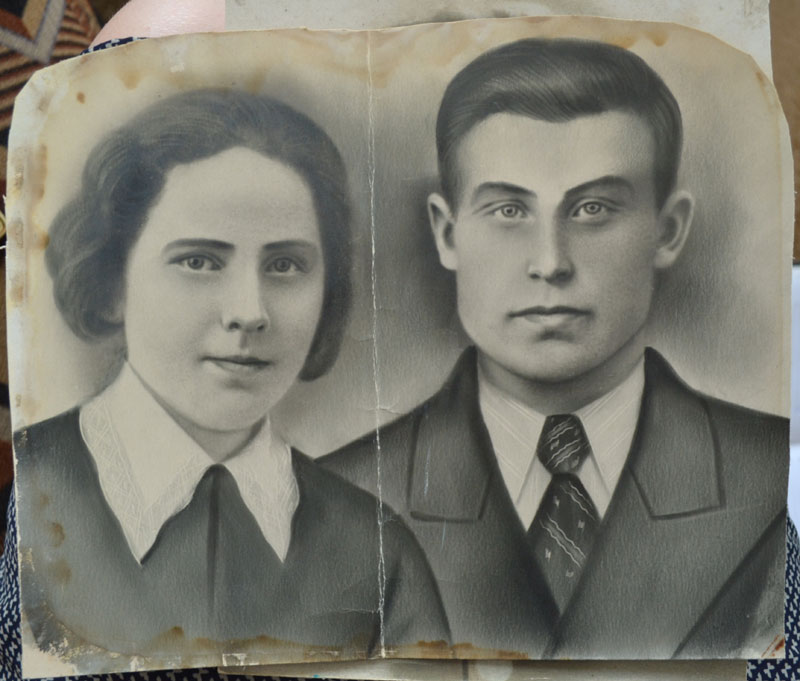
Lydia Filippovna’s parents – Lydia Karlovna and Filipp Filippovich
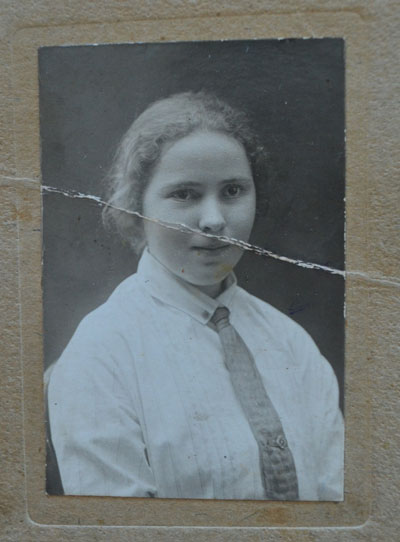
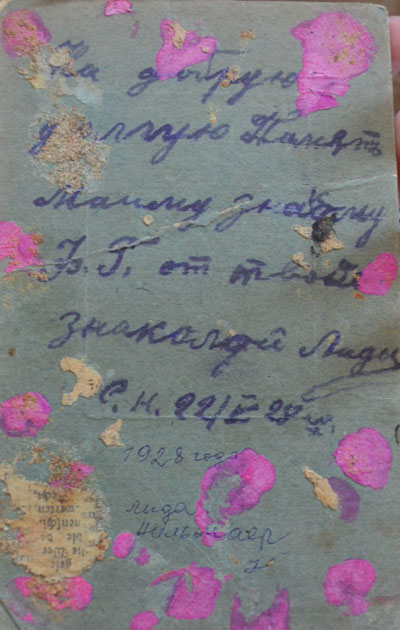
Mother Lydia Karlovna
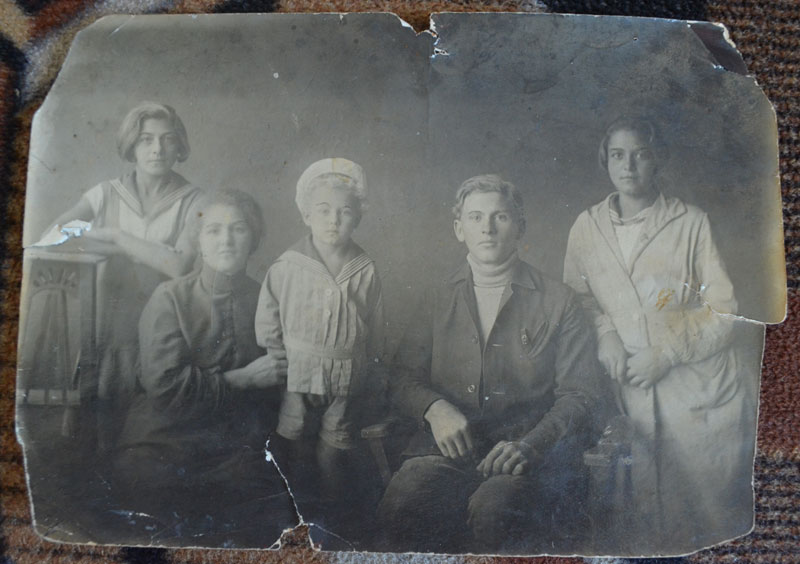
Lydia Filippovna‘s relatives from her mother’s side
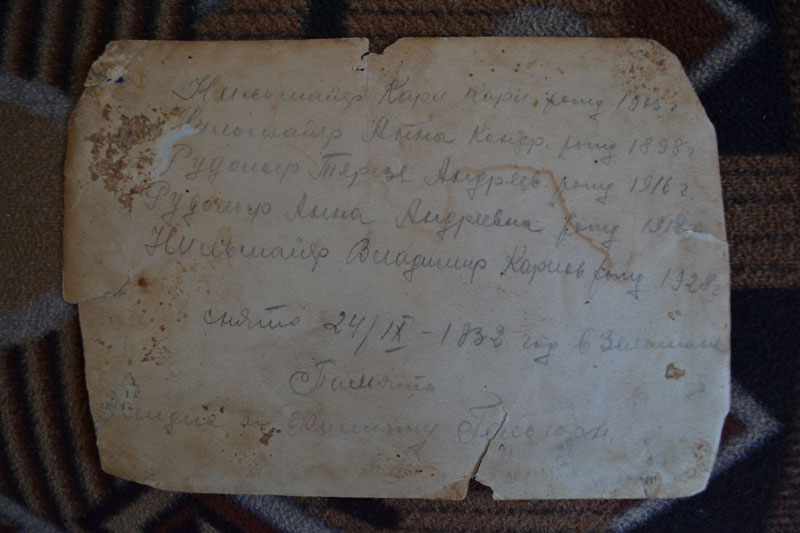
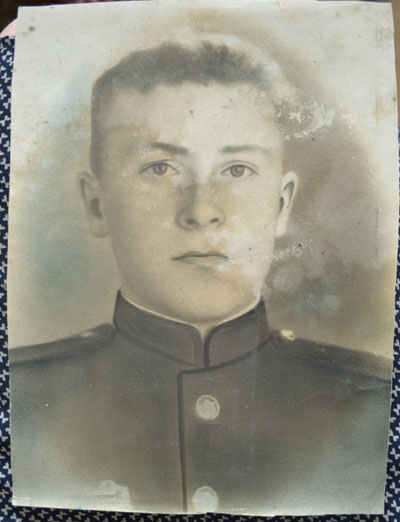
Lydia Filippovna‘s brother – Filipp Filippovich (born in 1933)
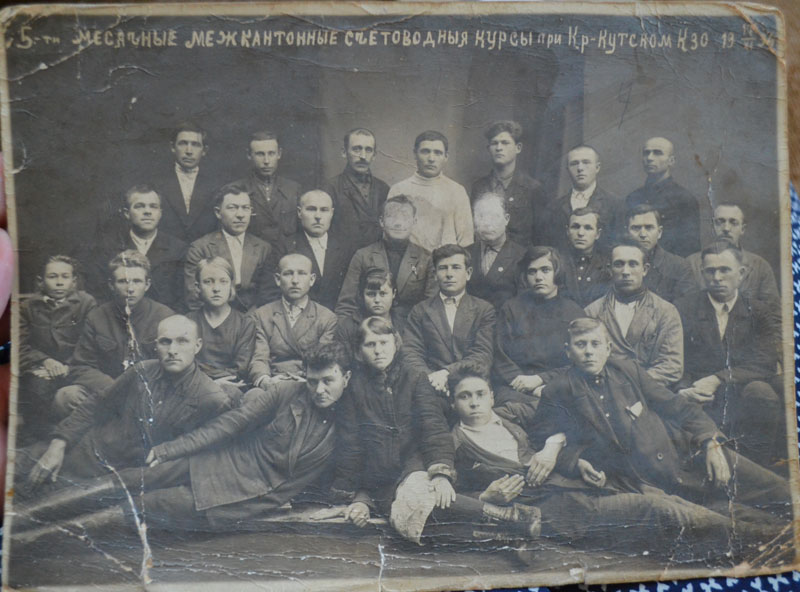
Diploma holders of the 5th training course for cattle-breeding (father –
Filipp Filippovich, last row, second from the left)
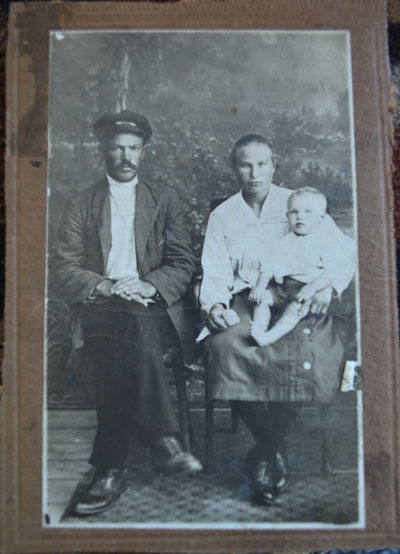
Paulina Filippovna Waitz and her husband
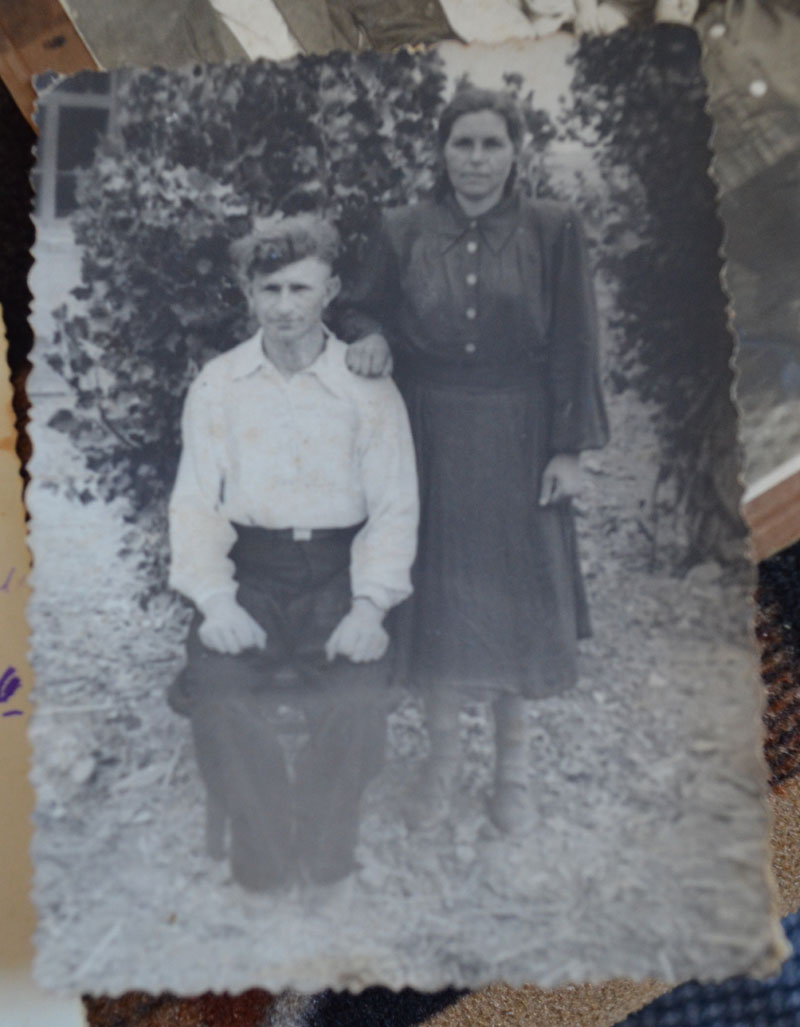
Emma und Yegor Geitz
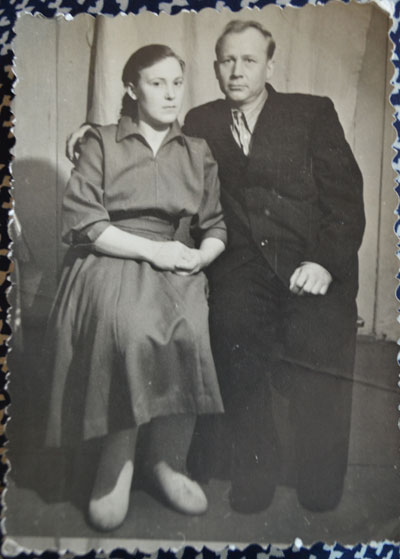
Lydia Filippovna and her husband Ehemann Viktor (settlement of Poloy)
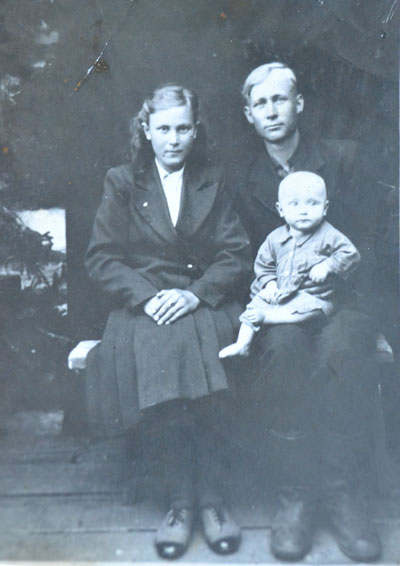
Lydia Filippovna and her husband Viktor (settlement of Poloy)
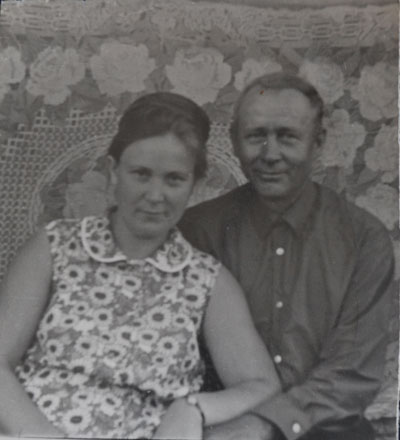
Lydia Filippovna and her husband Viktor
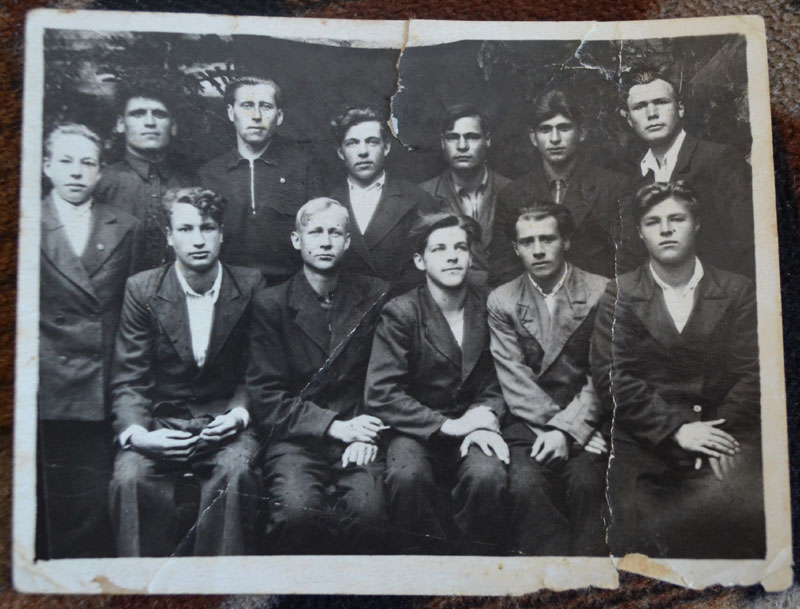
Husband, sitting, second from the left, 1950
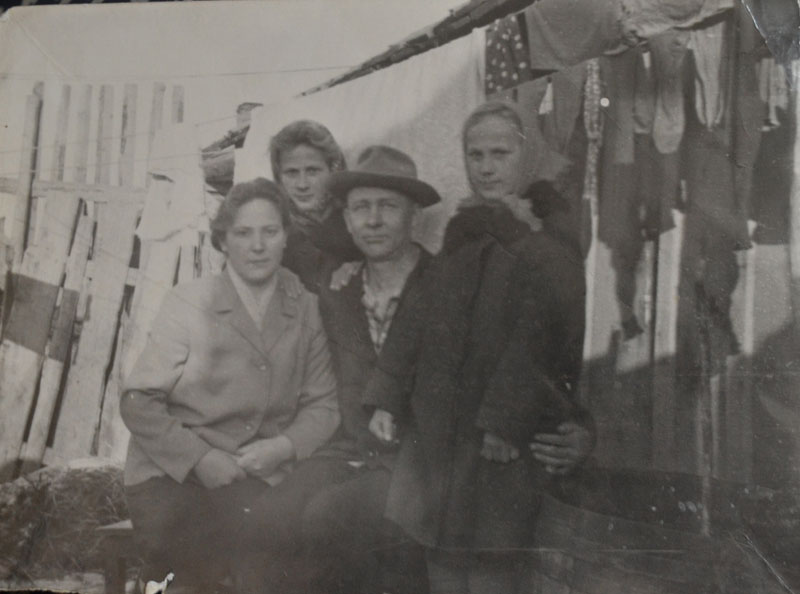
Lydia Filippovna with her husband and daughters
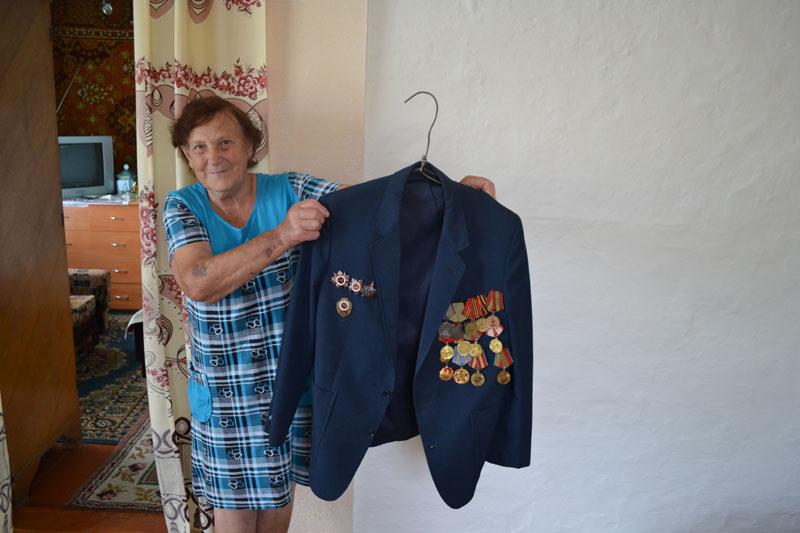
Lydia Filippovna showing her husband’s awards
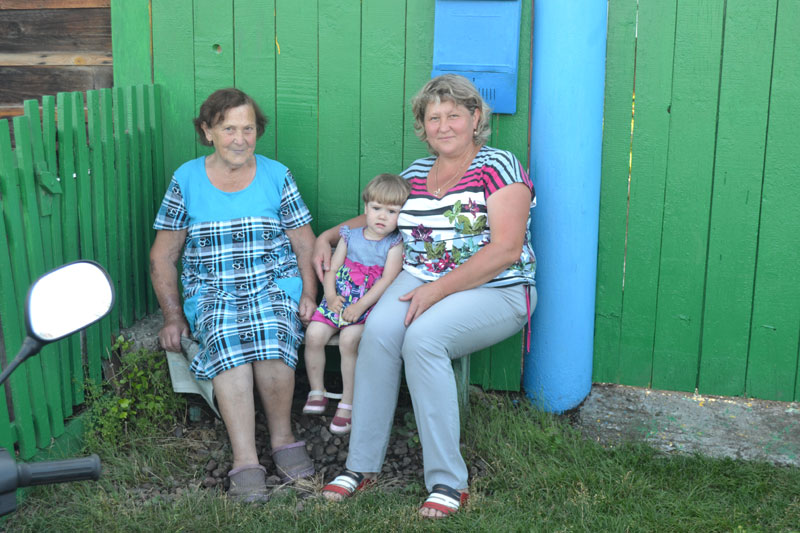
Lydia Filippovna with her granddaughter and great-granddaughter
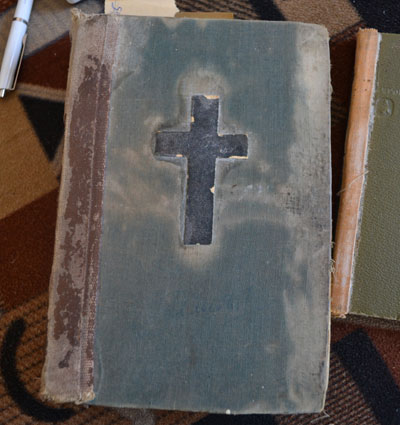
The bible of the father
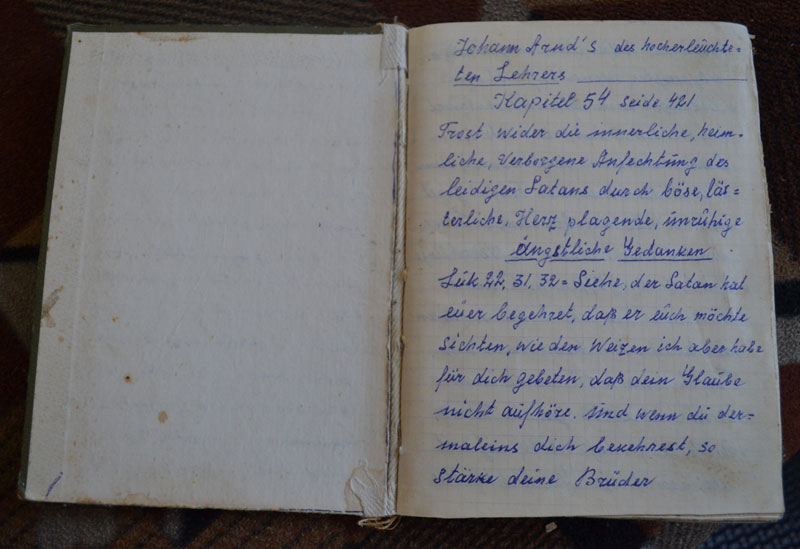
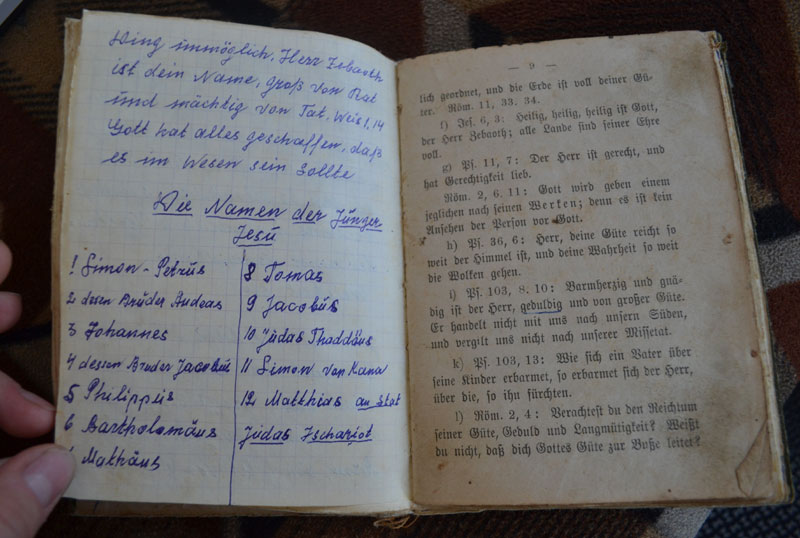
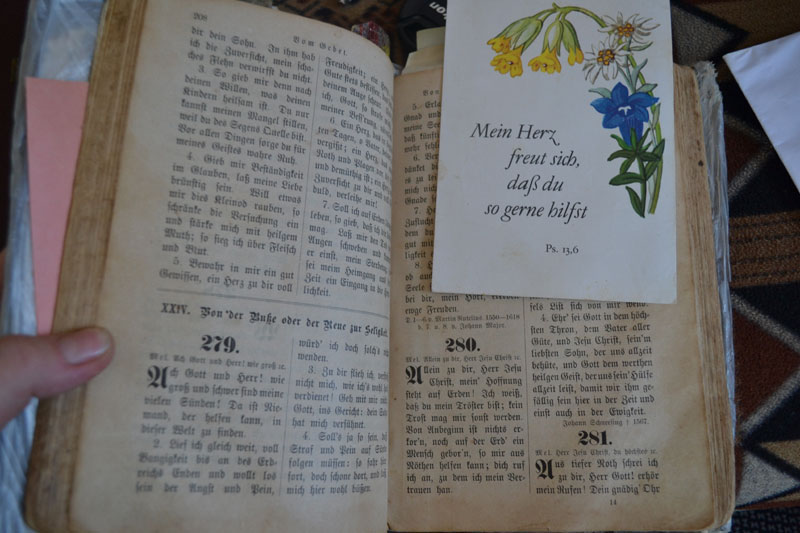
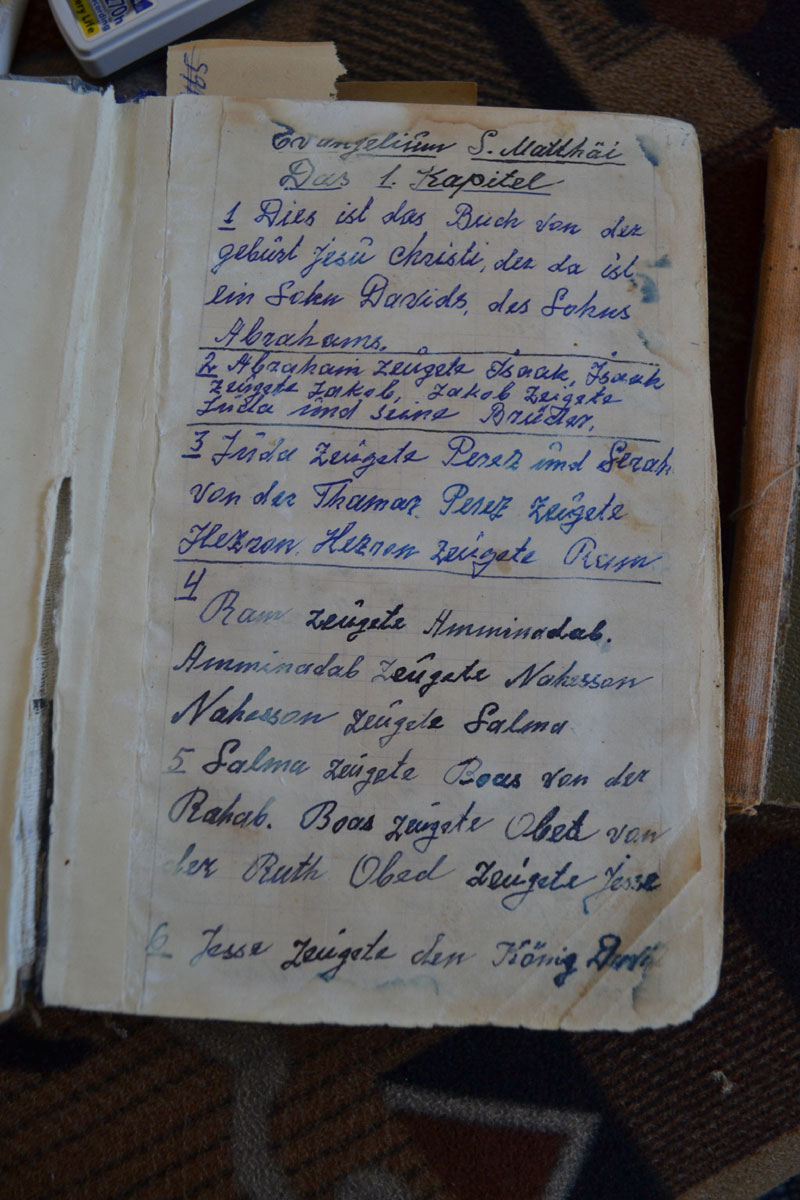
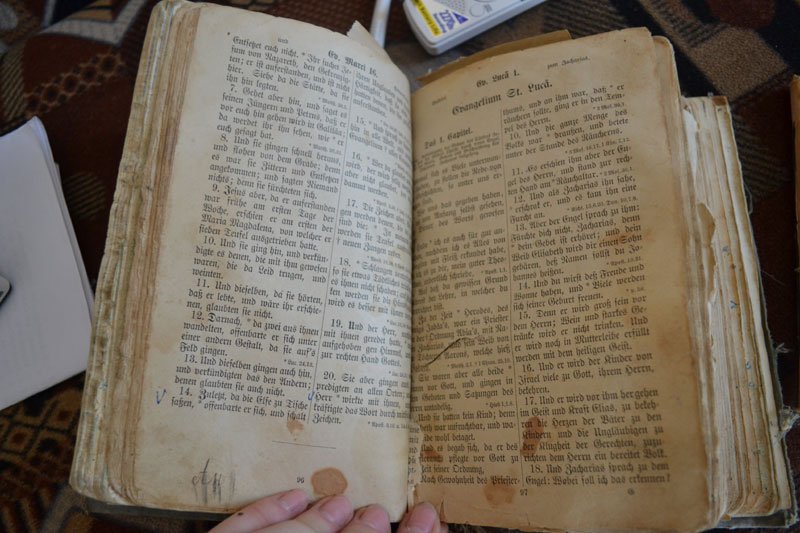
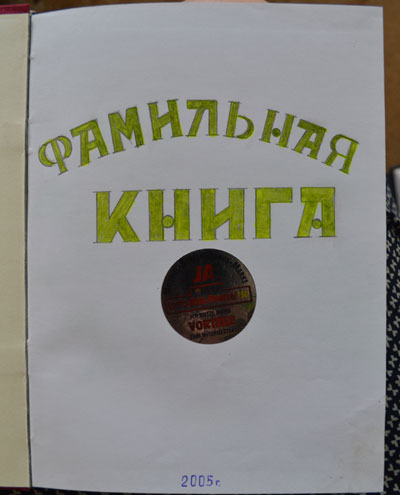
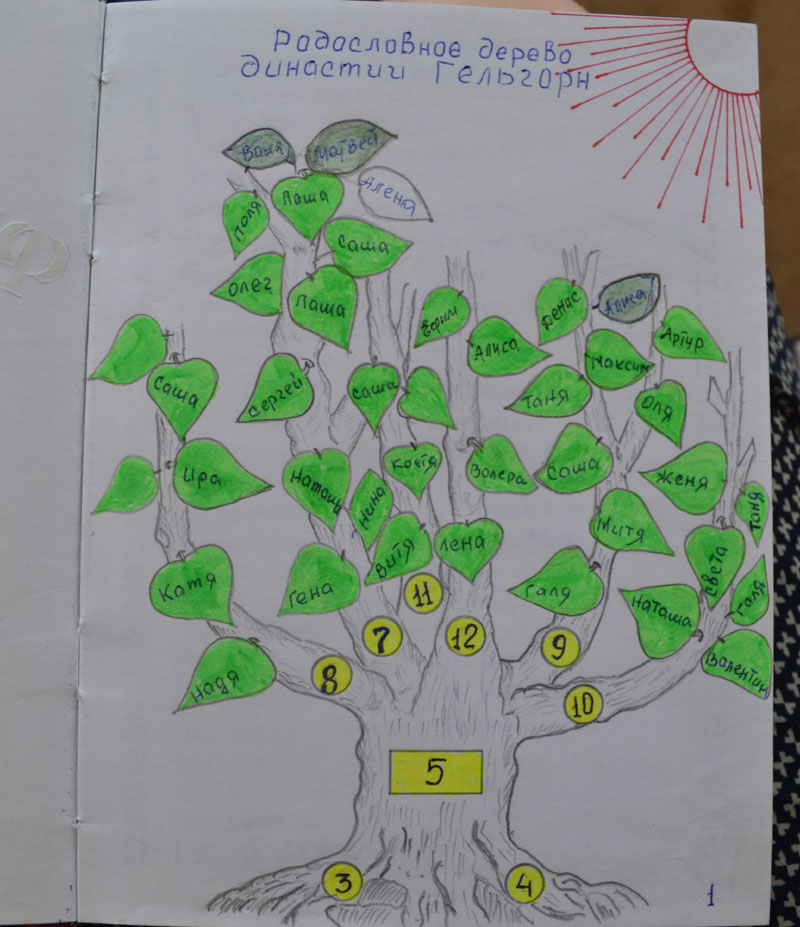
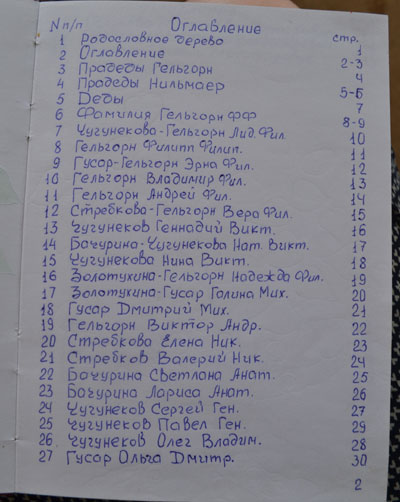
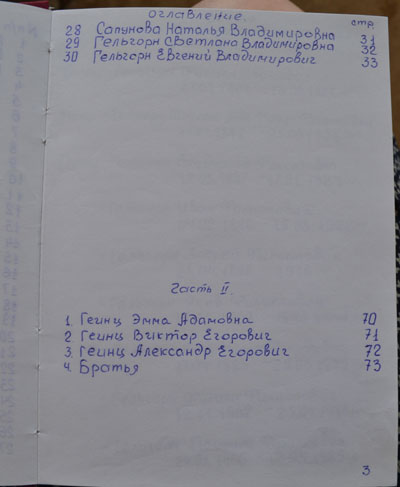
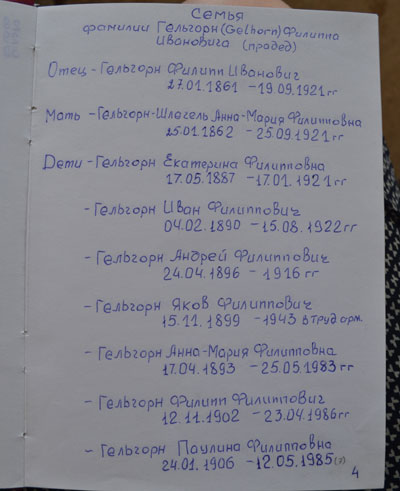
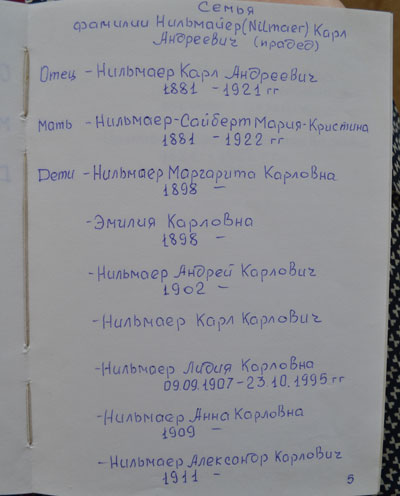
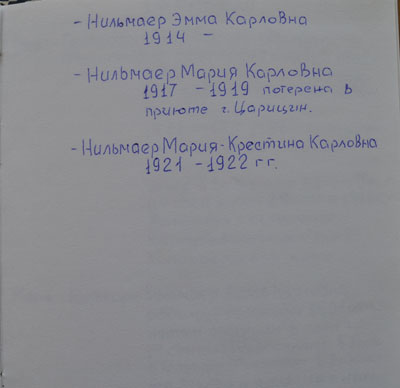
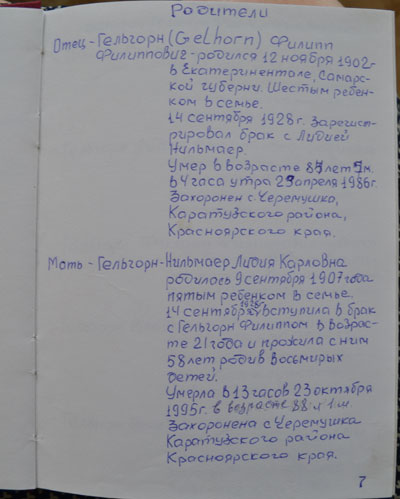
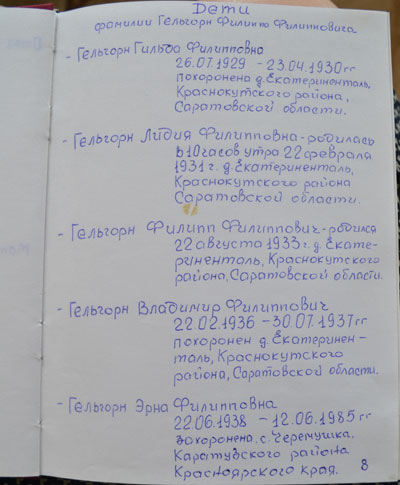
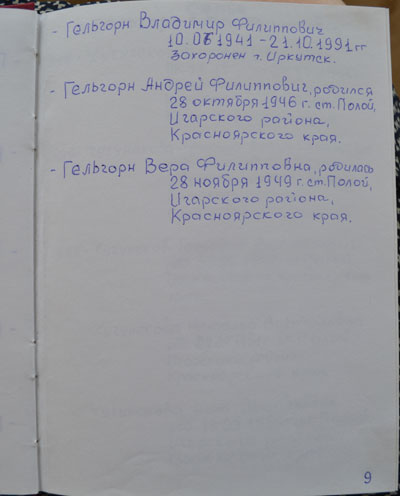
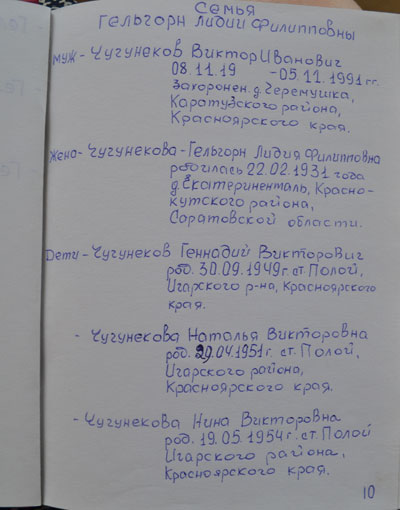
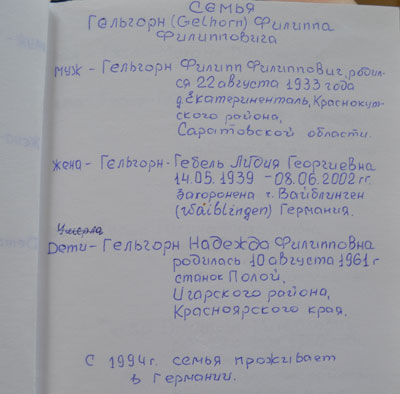

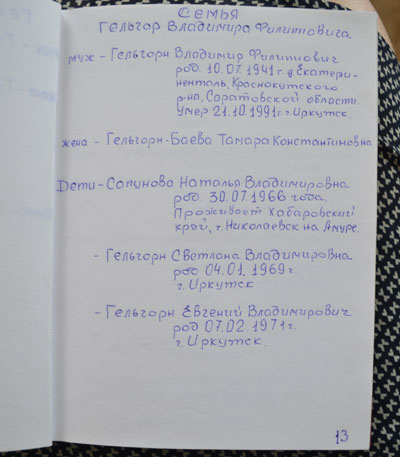
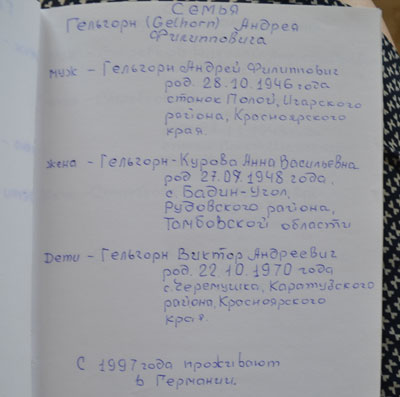
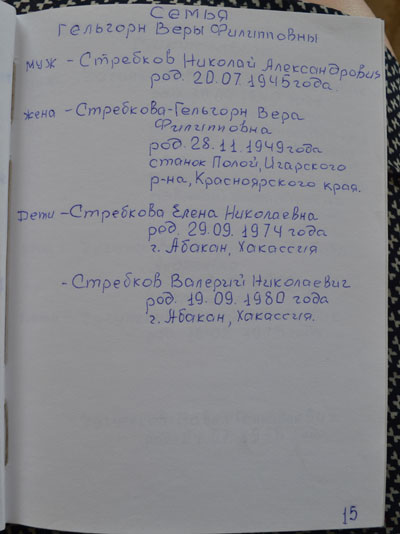
Expedition of the State Pedagogic V.P. Astafyev University Krasnoyarsk in cooperation with the Krasnoyarsk „Memorial“ organization carried out on the project: „The anthropologic change in socio-human sciences: Methods of field research and practical realization of oral narration“. 2016, District of Karatus